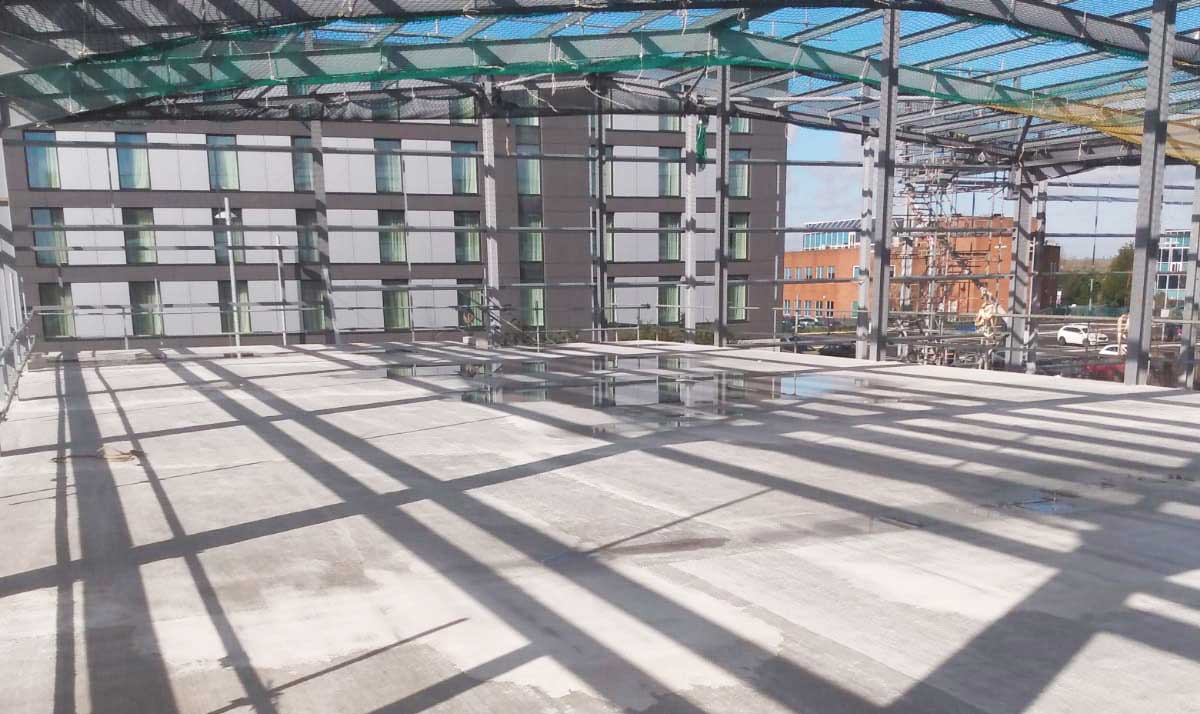Composites: The Future of Lasting Construction Products
Composites: The Future of Lasting Construction Products
Blog Article
Checking Out the Uses and Advantages of Recycled Composites in Modern Industries
The combinations of recycled products with advanced composite modern technologies provides an appealing method for enhancing sustainability, strength, and cost-efficiency throughout numerous industries. As markets seek ingenious remedies to deal with environmental issues and enhance operational performances, the incorporation of recycled composites arises as an engaging alternative.
Ecological Benefits of Recycled Compounds
The use of recycled composites in contemporary markets offers considerable ecological benefits, contributing to the decrease of waste and the preservation of all-natural sources. By incorporating recycled compounds into manufacturing procedures, industries can lower their dependence on virgin products, thereby lowering the amount of waste produced and the energy needed for removal and manufacturing. This change towards using recycled compounds aids in diverting products from landfills, alleviating the problem on waste administration systems, and reducing greenhouse gas discharges related to typical production techniques.
Furthermore, making use of recycled compounds promotes the preservation of natural deposits such as lumber, minerals, and water, which are commonly depleted with the extraction and processing of basic materials (composites). By extending the life expectancy of products with recycling, industries can aid protect communities and biodiversity by reducing the need for new resources. Overall, the fostering of recycled compounds in modern-day industries plays an essential duty in advertising sustainability and minimizing the ecological impact of manufacturing procedures
Improved Durability in Item Production
With a focus on durability and toughness, incorporating recycled compounds right into item production procedures enhances durability and sustainability. By making use of recycled compounds, makers can develop items that are not just solid but also resistant to tear and wear, making them optimal for long-lasting use in different markets. The combination of various products in recycled composites can typically cause enhanced toughness and toughness contrasted to conventional materials, supplying a cost-effective option for producing lasting items.
One of the essential advantages of making use of recycled compounds in item production is the capacity to customize the product buildings to satisfy certain durability demands. By changing the composition and production techniques, suppliers can personalize the recycled compounds to stand up to rough ecological problems, heavy tons, or regular usage without compromising on efficiency. This flexibility in design and production allows for the development of highly sturdy products that keep their stability with time, reducing the demand for constant replacements and eventually contributing to an extra lasting production procedure.
Cost-Effectiveness and Economic Benefits
Including recycled composites right into product manufacturing not only enhances longevity and sustainability however likewise offers significant cost-effectiveness and economic benefits. Using recycled compounds can lead to reduced material expenses as recycled materials are typically less costly than virgin materials. Furthermore, recycling composite materials can decrease waste disposal expenditures and decrease the requirement for land fill room, contributing to general price savings for industries.

Development and Layout Adaptability With Recycled Composites
Utilizing recycled compounds in modern industries uses unrivaled opportunities for development and layout flexibility. By integrating recycled materials into composite manufacturing procedures, companies can press the boundaries of conventional design restraints and check out brand-new opportunities. The convenience of recycled composites permits the development of complex forms and frameworks that might directory not be achievable with standard products.
One of the key benefits of recycled compounds is their ability to be formed into various kinds, providing designers the flexibility to experiment with distinct sizes and shapes. composites. This versatility opens up a world of imaginative chances, enabling the growth of lightweight yet resilient products that satisfy the certain needs of different markets
Moreover, the use of recycled composites advertises sustainable techniques and supports the round economy by lowering waste and minimizing the environmental impact of manufacturing processes. This concentrate on environment-friendly layout solutions aligns with the growing trend towards sustainability in modern sectors, making recycled compounds a beneficial resource for forward-thinking and ingenious firms.
Applications Across Different Industries
Recycled compounds find varied and impactful applications throughout a large range of sectors as a result of their one-of-a-kind residential properties and sustainability benefits. In the vehicle field, these products are increasingly used for making long lasting and light-weight components, enhancing fuel performance and lowering carbon emissions. The aerospace market take advantage of recycled composites in the production of aircraft parts, where the materials' strength-to-weight proportion is critical for making certain safety and security and efficiency. In construction, these compounds are utilized for creating solid yet eco-friendly building products, adding to lasting framework development. The sustainable power sector uses Going Here recycled compounds in wind generator blades and solar panels, harnessing their stamina and resistance to severe ecological conditions. In addition, the aquatic industry makes use of these products for manufacturing watercraft hulls and parts, using enhanced longevity and corrosion resistance. The flexibility and sustainability of recycled compounds make them valuable throughout different markets, driving innovation and environmental stewardship. composites.
Final Thought
Finally, the utilization of recycled compounds in modern markets uses significant ecological moved here benefits, enhanced longevity in product manufacturing, cost-effectiveness, and economic benefits. Moreover, making use of recycled compounds allows for technology and style versatility throughout numerous markets. On the whole, the fostering of recycled composites presents a sustainable and sensible solution for fulfilling the requirements of the industry while also decreasing ecological impact.

One of the vital advantages of utilizing recycled composites in product manufacturing is the ability to tailor the material buildings to fulfill particular durability demands. Making use of recycled compounds can lead to minimized material prices as recycled materials are usually much less costly than virgin materials. The aerospace industry advantages from recycled composites in the production of aircraft parts, where the materials' strength-to-weight ratio is important for ensuring safety and efficiency.
Report this page